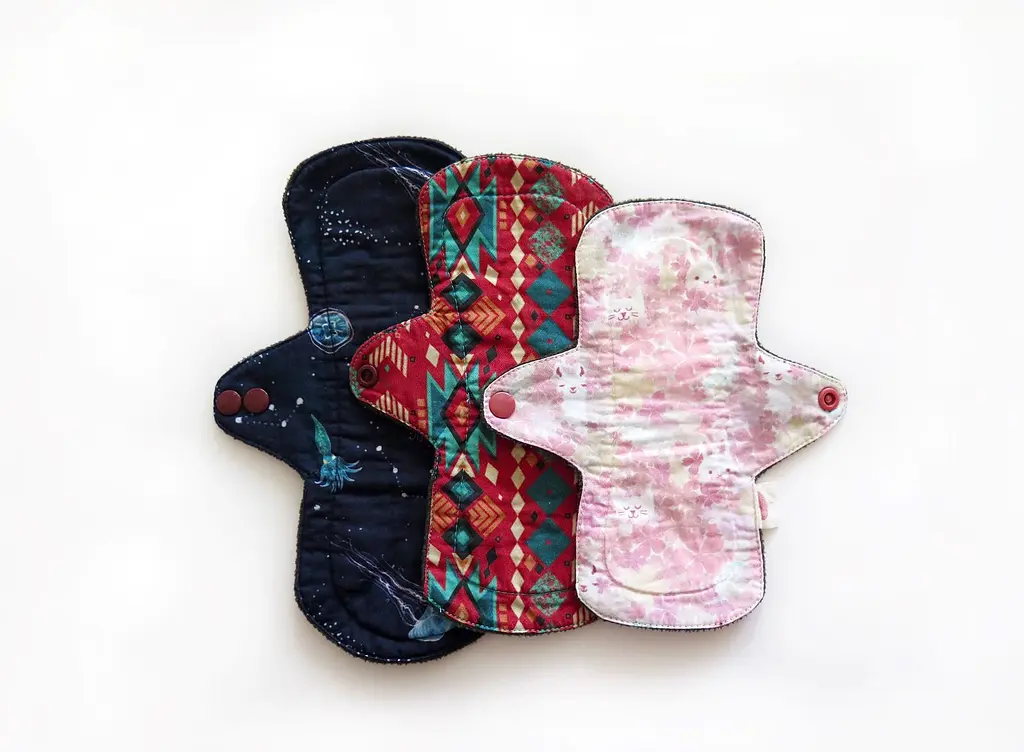Tackling Taboos: How Holistic Solutions Can Improve Menstrual Health Worldwide

Neville Okwaro
Menstrual Hygiene Management Lead, USAID Western Kenya Sanitation Project

Menstruation is often considered a taboo topic—shrouded in secrecy, stigmas, and even shame in many societies around the world—even as nearly half the world's population has to manage menstruation at some point in their lives.
Menstrual Hygiene Day is helping to change this, and it marks an annual opportunity each May to raise awareness about menstrual health and hygiene (MHH).
Did you know that about 500 million people around the world struggle to access menstrual products or safe and private spaces to use them? This can keep them from attending school or work.
RTI International is part of a global effort to address the systemic and multi-sectoral factors that impact MHH, including sexual and reproductive health, gender equality, education, equity and rights, and economic security. Solutions need to move beyond just increasing availability and affordability of menstrual products to addressing these intertwined issues.
In honor of Menstrual Hygiene Day, we asked three of our experts—in water, sanitation, and hygiene (WASH), education, and innovation—to weigh in on what is needed to get to a world where everyone can manage menstruation in a safe and dignified manner.
Neville: MHH permeates and cuts across several sectors, which is why a multi-sectoral approach is vital. Countries should consider strengthening multi-sectoral coordination with stakeholders from the public and private sectors to ensure that MHH approaches promote menstrual education; increase access to menstrual products, facilities, and services; increase access to disposal facilities; address barriers and challenges to menstrual focused interventions; and ensure the private sector is involved in MHH interventions.
Edgard: MHH interventions should use impact-centered design to understand the core issues people face when trying to access and use affordable menstrual products and to work with them to design self-sustaining solutions that create positive change for all stakeholders. This approach helps ensure that MHH interventions are holistic in nature and helps projects measure their effectiveness and sustainability. It is important that practitioners ask the right questions when designing these frameworks to ensure interventions meet local needs. For example:
Julianne: The alignment of multi-sectoral and multi-stakeholder priorities is essential, but such alignment can be challenging. MHH is influenced by governments, civil society organizations (CSOs), and private sector companies, and spans multiple programmatic sectors. Stakeholders are driven by different priorities, which may, at times, compete with one another.
For example, educational materials developed by some governments do not cover sexual education because of national policy, while materials produced by CSOs do. Some organizations promote incinerators to dispose of sanitary materials while others develop and promote reusable materials, reflecting a misalignment in priorities and/or incentives. Understanding these differing viewpoints and priorities are key for a successful MHH intervention.
Neville: One way to make MHH products more affordable and easier to access is to address tax regimens and policies that are not favorable to menstrual products. Many countries import these products instead of manufacturing them locally, which makes them subject to higher taxes. A first step is for governments to do away with value added tax or excise duty on MHH products.
But they can also go further by providing incentives to local manufacturers that reduce the high costs associated with manufacturing menstrual products for local markets. It’s also essential that countries establish and enforce quality standards to ensure only safe products are made available and that users know how to confirm whether the products are safe.
Lastly, education is key for increasing access. People need information on the variety of MHH products available so that they can make informed choices that fit their personal preferences and needs.
Edgard: Accessibility and affordability go hand in hand. Solving supply chain constraints remains a critical problem for the WASH industry, including MHH, in resource-constrained contexts.
Developing local solutions with local materials that are championed by local organizations and social entrepreneurs can solve these challenges and can improve accessibility. However, menstruation will remain a taboo in many places for the foreseeable future, which impacts affordability and access. Enabling menstruating individuals to attain financial independence through education can empower them to manage their MHH autonomously. This is an example of why a holistic, multi-sectoral approach to MHH is needed.
Julianne: We can’t underestimate the prevailing cultural norms and taboos regarding menstruation, which can mute the best policies and initiatives. Myths about menstruation in some places echo the myths that also perpetuate gender-based violence (GBV). Both are rooted in gender norms and power imbalances that perpetuate inequality and GBV. Such violence often takes place at the school for a variety of reasons, one being unsafe toilet facilities.
MHM interventions must account for safe spaces and norms that may allow for GBV to take place. These interventions must work to reduce stigma and confront myths that perpetuate harmful and/or ineffective practices surrounding menstruation. Doing so, decreases the opportunities for GBV to occur.
Edgard: Mitigation and response plans can help projects identify and avoid the unintended consequences of MHH interventions. Given the harmful gender stereotypes and taboos surrounding menstruation, an emphasis on the need for discreet and private management of menstruation could inadvertently reinforce the idea that menstruation is unsanitary or shameful. It is therefore critical that all MHH interventions include awareness raising and education. Another unintended consequence could be widespread use of disposable menstrual products, which can have negative environmental consequences. Projects should consider designing products that are sustainable and/or truly degradable along with strengthening solid waste management systems.
Neville: A lot of energy is spent on the provision of MHH products assuming that they will solve the menstrual challenge. But demystifying menstruation through access to reliable information is key and is sometimes overlooked. Information and education on MHH can fight misconceptions, reduce myths and taboos, and change the narrative on menstruation and MHH. Menstrual education can help promote self-efficacy and self-esteem, boost productivity of individuals at the workplace, decrease risk of urogenital infections, and even help reduce teenage pregnancies.
Learn more about our work in WASH, education, and RTI’s Innovation Advisors.